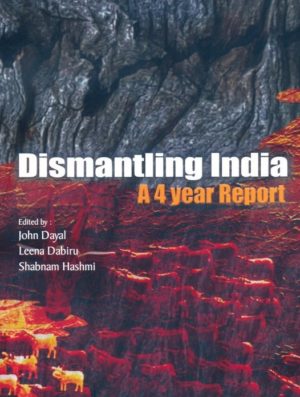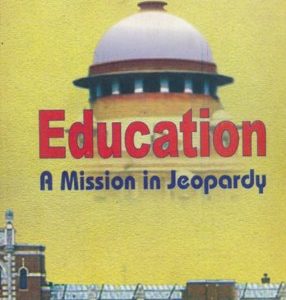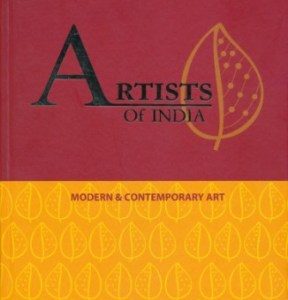Description
Let us know the Author Dr. Felix Podimattam OFM Cap.
Dr. Felix Podimattam is one of the best known Indian authors in the field of ethics and morality. He holds a Master’s degree in Political Science from the University of Mysore, a Licentiate degree in theology from Pontifical Gregorian University, Rome and a Doctoral degree in Moral Theology from the Alphonsian Academy, Rome. His doctoral thesis ‘The Relativity of Natural Law’ is acclaimed as exceptionally excellent. The thesis was guided by the eminent Moral Theologian, Bernard Haering, who influenced the renewal of Moral teachings of the Church during and after the Vatican II. Dr. Podimattam is resident professor at St. Francis Theological College, Kottayam and has been the founding member and first president of the Indian Moral Theologians Association. Most of his books, numbering over 120, are published by Media House, Delhi. Having gone through most of his books, let me highlight the most significant characteristics of his writings. First of all, he engages in a creative dialogue with other authors on every topic of discussion. Second, he tries to compare and integrate, as far as possible, the visions and views of other religions. Third, he holds a very positive attitude to life in general, especially to human body, sexuality, etc. Fourth, he is a keen observer of the socio-political and religious happenings in the society and responds to them immediately. His book on ‘Fast unto death’ during the upheaval of fisher people’s struggle in the eighties and his book on ‘Da Vinci Code’ a few years ago, where he gives a theological response to journalism with half-truths, are worth mentioning here. Fifth, he has taken keen interest on equal rights and dignity to women in the Church as well as in the society. In the context of widespread discrimination against women in the Church and society he published a six-volume work titled: ‘In praise of the woman’. Sixth, he holds on to the sacredness of life in all its forms and he has published books on topics like abortion, euthanasia, etc. Seventh, we find in his writings a harmonious blending of the traditional wisdom with its emphasis on fundamental Christian values as well as the findings of modern sciences like psychology, sociology, anthropology, etc, as well as the latest fruits of biblical exegesis.
The latest contribution of Dr. Podimattam, which may be acclaimed
The Making of a Masterpiece
The latest contribution of Dr. Podimattam, which may be acclaimed as his masterpiece, is: The Ten Commandments in the Law of Christ, a 20 volume work on the Decalogue. His vast knowledge on the subject gained through painstaking research, his teaching experience in various theological institutes stretching out over four decades and frank discussions with eminent thinkers have gone into this work. These books provide us with a re-interpretation of the commandments keeping in mind the genuine concerns of the people of God and at the same time remaining absolutely loyal to the teaching of Christ – “Christ did not come to abolish the law and the prophets, but to fulfil them”.
CONTENTS
1. AMNIOCENTESIS
1.1. Introductory observations
1.2. Ethical Aspects of Sex Selection
1.3. Pastoral Considerations
2. ARTIFICIAL INSEMINATION
2.1. Morality of AIH
2.1.1. Official Teaching of the Church
2.1.2. Moral Theological Discussion on AIH
2.2. Morality of AID
2.2.1. Official Teaching of the Church
2.2.2. Moral Theological Discussion on AID
3. CAPITAL PUNISHMENT
3.1. The State Has the Power to Inflict Capital Punishment
3.2. For Abolition of Capital Punishment
3.2.1. Support from the Bible
3.2.2. Support from Jewish Law
3.2.3. Support from Greek Law
3.2.4. Support from the Magisterium
3.2.5. Support from Rational Arguments
4. CARE OF HOPELESSLY ILL PATIENTS
5. DEATH AND THE DETERMINATION OF DEATH
5.1. Philosophical and Theological Considerations
5.2. Criteria for Death
5.3. Legal Aspects of Pronouncing Death
5.4. Attitudes toward Death
5.4.1. Attitudes of Persons Facing Their Own Imminent Death.
5.4.2. Attitudes of Persons Not Facing Their Own Imminent Death
5.4.3. Attitudes of Professionals
6. ETHICAL ISSUES IN AIDS
6.1. Nature’s Wrath or God’s Punishment?
6.2. AIDS, Confidentiality, and Privacy
6.3. Other Rights of AIDS Patients
6.4. Prevention of Aids and Use of Condoms
7. ETHICAL ISSUES IN ORGAN DONATION AND TRANSPLANTATION
7.1. The Intrinsic Morality of Organ Transplantation
7.2. The Determination of Death
7.3. The Supply of Organs
7.4. Selection of Patients for a Scarce Resource
8. HUMAN CLONING FOR THERAPEUTIC PURPOSES
8.1. Morality of Cloning in Catholic Teaching
8.2. Morality of Cloning in the Opinion of Theologians
8.2.1. Morality of Reproductive Cloning
8.2.2. Morality of Therapeutic Cloning: Human Stem Cell Therapy
8.2.2.1. Human embryonic stem cell therapy
8.2.2.2. Human Adult Stem Cell Therapy
9. HUMAN EXPERIMENTATION AND RESEARCH
9.1. Need of Human Experimentation
9.2. Experimentation on Children
9.3. Experimentation on Fetuses
10. HUMAN GENOME PROJECT AND GENE THERAPY
10.1. The Human Genome Project (HGP)
10.2. Gene Therapy
10.2.1. Nature of Gene Therapy
10.2.2. Ethics of Gene Therapy
10.2.2.1. Ethics of gene therapy in general
10.2.2.2. Ethics of somatic gene therapy
10.2.2.3. Ethics of human germline gene therapy
10.3. Theological Problems
10.3.1. The Relevance of God in a World of Immortal Humans
10.3.2. The Human Genome Project and Trans-Human Species
10.3.3. Science, Theology, and the Origin of Life
11 ..SERIOUSLY DEFECTIVE BABY: TO LIVE OR LET DIE?
11.1. Medical Considerations
11.2. Moral Reflections
11.3. Pastoral Observations
12. WITHDRAWING AND WITHHOLDING MEDICALLY ADMINISTERED NUTRITION AND HYDRATION
12.1. What the Magisterium Teaches
12.2. What Tradition Says
12.3. What Contemporary Theologians Affirm
12.4. What Physicians, Courts, and People Think
12.5. What Theological Reasons Point To
12.5.1. Meaning of Inviolability of Human Life
12.5.2. Notion of a Dying Patient
12.5.3. Artificial Nutrition-Hydration as Medical Procedure
12.5.4. Right to Die with Dignity
12.5.5. Ordinary and Extraordinary Means
12.5.6. Withdrawal of Artificial Nutrition-Hydration versus Euthanasia
12.5.7. Scarce Resources and Care
12.5.8. Answer to Objections
BIBLIOGRAPHY




Reviews
There are no reviews yet.